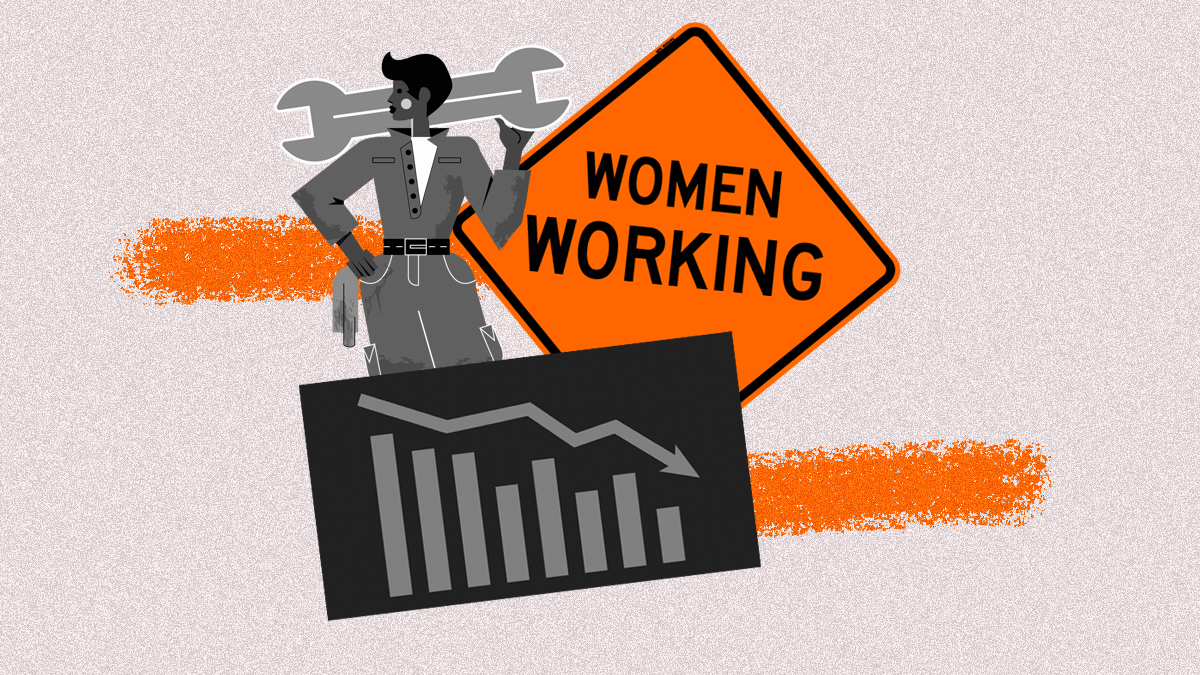Abortion rights, women of color, and LGBTQIA+ people are under attack. Pledge to join us in fighting for gender justice.
Working Women Are Essential to a Strong and Inclusive Economy

“The apprenticeship program changed my life. It gave my kids health care, financial stability, and the chance for my daughter to go to cosmetology school. Before, I was barely able to pay rent and was always on the verge of homelessness after aging out of foster care. This apprenticeship program put me back on track and lifted a huge weight off my shoulders.” – Ariel Coldweather, Chicago 597 Pipefitter
When we talk about building a strong and inclusive economy, we must start with women.
From the job site to the home to the halls of government, working women are vital to every sector and every community in this country. Our work encourages economic growth, strengthens families, and creates opportunity, not just for themselves, but for everyone. Despite the value working women bring to our economy and country, the Trump administration has launched a large-scale, coordinated, and multipronged attack on them in an attempt to erase decades of progress.
Last month, the Department of Labor, led by Trump appointee Lori Chavez-DeRemer, proposed rolling back more than 60 regulations, which would have a devastating impact on working women. Between weakening worker safety standards and civil rights enforcement, these proposed rollbacks will take away crucial protections and opportunities for working women, leaving them even more undervalued and underpaid.
For example, home care workers are likely to be deeply harmed by these deregulations. The home care workforce is made up mostly of women, with nearly nine in 10 workers being women, over half of whom are women of color. They support people with disabilities and older adults in need of assistance. However, Congress recently passed the “Big Ugly Bill,” which cuts Medicaid funding, leaving millions of families who depend on home care workers with fewer resources. Now the Department of Labor plans to roll back minimum wage and overtime protections, so home care workers could earn less than the federal minimum wage, which is just $7.25/hour, leading to higher turnover and fewer options for women and families and undermining the care economy and broader economy.
Trump’s attacks affect other working women, too. Women make up nearly half of the workforce, but only about 4% in skilled trades and 30% in manufacturing. Apprenticeship programs help more women enter these fields, but DOL’s proposed rules will weaken nondiscrimination protections and reduce opportunities for women to enter apprenticeships in industries like the skilled trades, risking progress and worsening pay gaps. Workers employed by federal contractors are also caught in the crosshairs of this administration’s anti-worker agenda. One of Trump’s first moves was to rescind a 60-year-old executive order with longstanding civil rights protections for workers employed by federal contractors. The DOL’s proposed rule now seeks to roll back the regulations that prohibited federal contractors from discriminating on the basis of race, national origin, religion, sex, sexual orientation, or gender identity and helped open the doors of opportunity and promote fairness in pay and promotions by requiring contractors to undertake affirmative efforts to promote equal opportunity and prevent discrimination.
With women’s labor force participation hitting a historic low for the first time since the pandemic, and federal agencies laying off workers en masse, and with women accounting for the majority of federal workers targeted, the stakes have never been higher. Workplace protections are central to ensuring that women can participate fully in the labor force and, by extension, in public life. When regulations safeguard fair wages, nondiscrimination, and access to training and opportunity, they affirm women’s place in the industries and jobs that shape our society.
Weakening those protections has the opposite effect: it pushes women out, confines them to the margins of the economy, and limits their ability to thrive.




